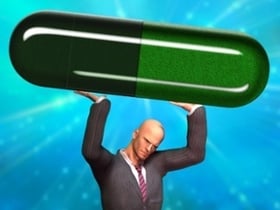 Trending news in the recovery community: a longstanding governmental rule about the number of patients for whom doctors can prescribe opioid addiction medication - such as buprenorphine - may be revised soon.
Trending news in the recovery community: a longstanding governmental rule about the number of patients for whom doctors can prescribe opioid addiction medication - such as buprenorphine - may be revised soon.
The United States Department of Health and Human Services (HHS) has submitted proposed revisions to current legislation. If the updated legislation is approved, it would mean that more individuals in recovery could have access to buprenorphine for their treatment protocols. There’s a strong probability that the new rule could be passed within the year.
The Huffington Post article, Obama Administration Offers Desperately Needed Help For People Addicted to Opioids sums up the situation:
“Under the current regulations, doctors can treat only 30 patients at a time in the first year they’re certified to prescribe buprenorphine. They can receive authorization to go up to 100 patients in subsequent years. If the proposed rule goes into effect, certified doctors could treat as many as 200 patients at a time in their third year.”
Pros and Cons of Medication-Assisted Treatment
Pro: The proposed rule represents a positive step toward helping some individuals receive the medication-assisted treatment (MAT) that they need to detox from drug addiction. At present, there are long wait lists for buprenorphine prescriptions, and people have died while waiting for treatment.
Con: On the other hand, it’s possible that this new rule could encourage treatment centers to rely more heavily on addiction medication protocols instead of addressing the underlying core issues that drive addictions.
What is Buprenorphine?
Buprenorphine (BYOO-pre-NOR-feen) is an opioid medication used to treat opioid addiction. At the appropriate dosage, buprenorphine helps:
- Suppress physical opioid withdrawal symptoms;
- Decrease cravings for opioids;
- Reduce illicit opioid use;
- Block the effects of other opioids; and
- Help patients stay in treatment programs
Buprenorphine (brand name Suboxone) and similar opioids do serve a purpose in drug treatment as a taper option. Synthetic opiates can be used to taper an existing opiate dose down to nothing. This can be helpful - even life-saving! - for individuals with severe physiological drug dependencies.
The FDA approved the use of buprenorphine in 2002 to treat opioid addiction. Public health officials saw it as a huge victory as it combined counseling and a new kind of medication-assisted treatment (MAT) that was seen as the standard of care by public health entities all over the world.
Why Buprenorphine Restrictions?
In order to discuss the benefits and drawbacks of the rule change, it’s important to understand why it went into effect in the first place.
The reasoning for the current restrictions on buprenorphine access is simple: Over the last several years, the Drug Enforcement Administration (DEA) has cracked down on pain medications in an attempt to stop the narcotic and heroin epidemic. New rules have made it more challenging for doctors to prescribe narcotics and for patients to receive pain medications.
As such, individuals with chronic pain suddenly found it impossible to refill their scripts. Their doctors were under pressure from the DEA to reduce the amount of pain prescriptions they wrote.
The patients with chronic pain depended upon their medications, and they received no alternative solution when their supply was cut off.
What did they do? Many people picked up whatever painkillers they could off the streets; some switched to heroin.
An opiate is an opiate, and when you’re in serious pain, you’ll take what you can get.
The Purpose of Opioids in Medication Assisted Treatment
However, treatment centers such as The Clearing often welcome participants who have been on Suboxone for years with no taper protocol!
This is a clear misuse of medication that leads to an increased drug dependency.
So while buprenorphine (commonly sold as Suboxone) does have a place in detox, it’s important to note that the medication is often misused.
Prescribing an opioid indefinitely with no taper option isn’t treating addiction; it’s merely enabling a person to stay stuck.
The Danger of Insufficient Psychological Support
That said, it’s vital that tapering individuals off opiates needs to happen in conjunction with professional healing work. Attempting to taper drug supply without concurrently addressing the underlying core issues that have them on the opiate to begin with is a setup for relapse.
One caveat: This doesn't hold true for individuals who got hooked on pain medications as a result of a physical injury. Those people can simply detox and move on with their lives.
However, the large majority of individuals in recovery don’t fit that pattern. Most people with substance abuse issues have a dual diagnosis - an addiction along with a mental health issue - and they need help with underlying core issues before their detox can last.
Why Addiction Counseling Matters
There’s no doubt about it: Professional counseling is essential to healing.
Yet it’s also true that not just any therapy will work for addiction recovery. In order to be effective, look for a holistic mental health healing model that addresses all four levels of healing: physical, mental, emotional, and spiritual.
Each level requires a different counseling strategy, outlined below.
- Physical (What you do): Behavioral Therapy,
- Mental (What you think and believe): Rational Emotive Therapy and Person Centered Therapy
- Emotional (What you feel): Gestalt Therapy, Developmental Psychology, Neuro-Linguistic Programming and Psychosynthesis
- Spiritual (Who you truly are): Meditation, Contemplation, Psychosynthesis and Core Transformation
Many therapists either don't know or don't want to do emotional-level work, but behavioral strategies are not enough.
Coping skills alone will not work without healing the underlying core issues of addiction.



